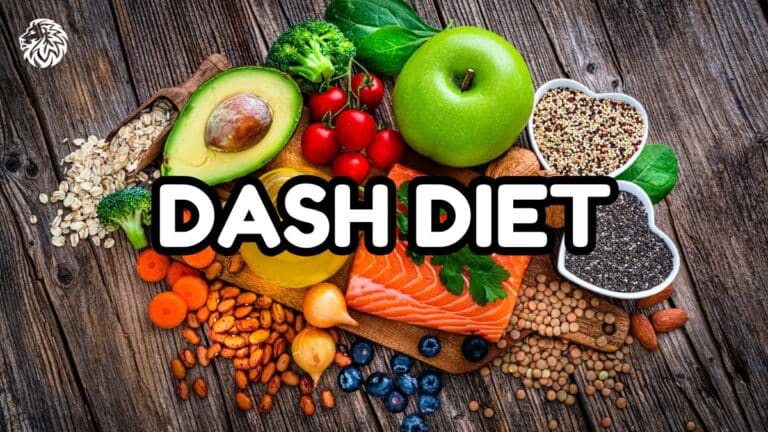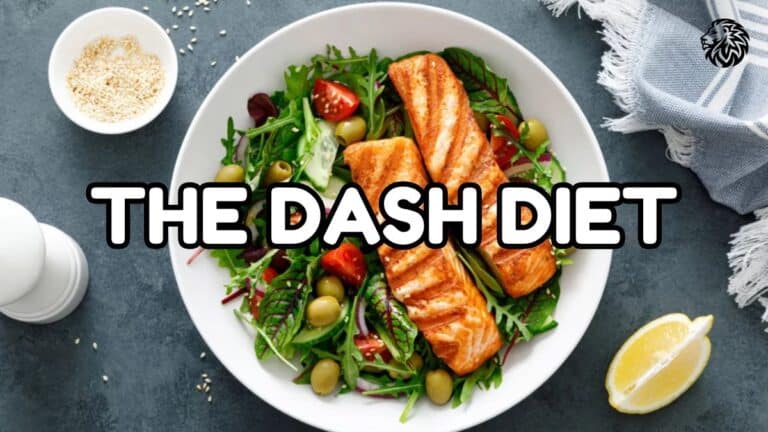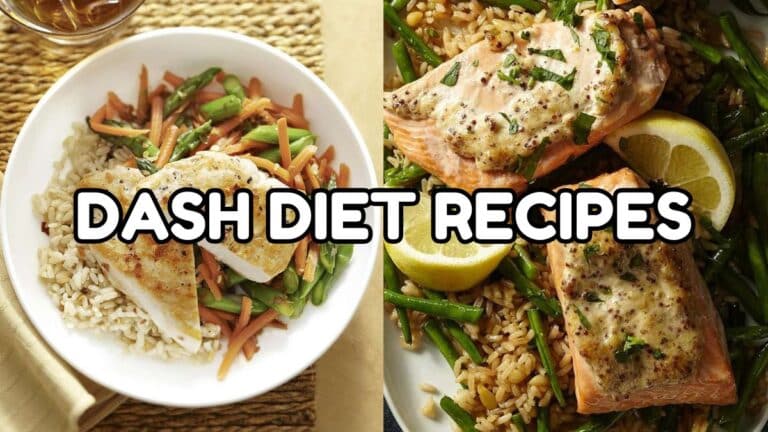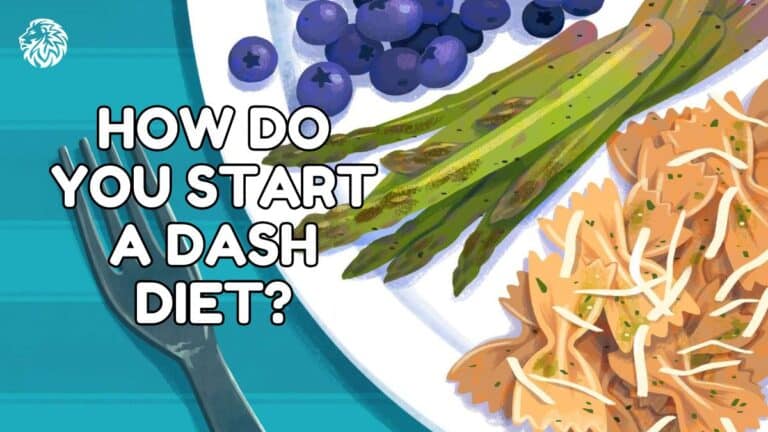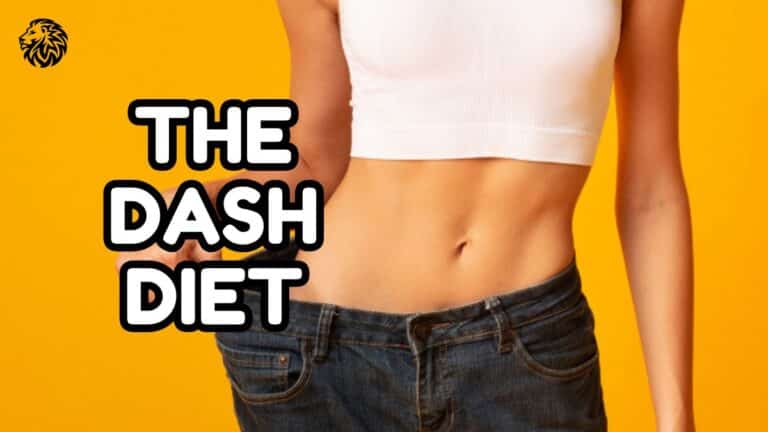The DASH (Dietary Approaches to Stop Hypertension) Diet is often recommended for improving heart health, managing blood pressure, and promoting overall wellness. However, one of the common questions that arise when considering this eating plan is: “Is the DASH Diet low fat?” In this blog post, we’ll dive into the specifics of the DASH Diet’s fat content and how it balances macronutrients to support a healthier lifestyle.
Understanding the DASH Diet
The DASH Diet was originally developed to help people lower their blood pressure without the use of medication. It focuses on foods that are rich in essential nutrients like potassium, calcium, and magnesium, which are key to regulating blood pressure. The eating plan encourages a high intake of fruits, vegetables, whole grains, lean proteins, and low-fat dairy products. By reducing sodium and incorporating these heart-healthy foods, the DASH Diet promotes better cardiovascular health.
The Role of Fat in the DASH Diet
To answer the question, yes, the DASH Diet can be considered low in unhealthy fats, particularly saturated and trans fats. However, it does not eliminate fat altogether, nor does it follow a “low-fat” label in the extreme sense. Instead, the DASH Diet emphasizes healthy fats while limiting those that can negatively impact heart health.
Fat plays an essential role in a balanced diet, supporting brain function, cell growth, and the absorption of fat-soluble vitamins. The DASH Diet recognizes the importance of fats, but the focus is on choosing the right types. Let’s explore how the DASH Diet incorporates fat in a way that promotes long-term health.
Healthy Fats in the DASH Diet
The DASH Diet encourages the consumption of healthy fats that come from sources like:
- Nuts and Seeds: Almonds, walnuts, flaxseeds, and chia seeds are excellent sources of unsaturated fats, which help reduce bad cholesterol (LDL) levels and lower the risk of heart disease.
- Olive Oil: A staple of many heart-healthy diets, olive oil is rich in monounsaturated fats, which are beneficial for maintaining heart health and lowering inflammation in the body.
- Avocados: These nutrient-dense fruits are high in monounsaturated fats, making them a great addition to a DASH-friendly meal.
- Fatty Fish: Salmon, mackerel, and sardines are rich in omega-3 fatty acids, a type of polyunsaturated fat that supports heart health and reduces inflammation.
These fats are essential for maintaining good health, especially when you are following a diet designed to reduce cardiovascular risk.
Limiting Unhealthy Fats
While the DASH Diet allows for healthy fats, it strictly limits saturated fats and trans fats, which are known to raise cholesterol levels and increase the risk of heart disease. These fats are commonly found in:
- Red Meat: High in saturated fat, red meat is limited on the DASH Diet. When you do consume meat, the focus is on lean cuts or alternatives like poultry and fish.
- Full-Fat Dairy Products: Instead of full-fat milk, cheese, and yogurt, the DASH Diet recommends low-fat or fat-free options, which provide the same nutrients without the excess saturated fat.
- Fried and Processed Foods: Many processed snacks and fast food items are laden with trans fats, which are harmful to heart health. The DASH Diet discourages these foods, emphasizing whole, unprocessed options.
Is the DASH Diet “Low Fat”?
Now, to directly address whether the DASH Diet is low in fat: the DASH Diet is moderate in fat, but low in unhealthy fats. This distinction is important because the diet doesn’t aim to drastically reduce all fats. Instead, it focuses on limiting saturated and trans fats while encouraging healthier options. This approach is consistent with research that suggests a diet rich in unsaturated fats can be beneficial for heart health, while diets high in saturated and trans fats increase the risk of cardiovascular disease.
Daily Fat Intake on the DASH Diet
The DASH Diet follows general guidelines for a balanced intake of macronutrients, which includes fats. Typically, fats should account for about 27% of your total daily calories on the DASH Diet. Of this, most should come from unsaturated fats, with less than 6% from saturated fats, and trans fats should be avoided altogether.
To break this down, if you are following a 2,000-calorie-per-day diet, the recommended fat intake would be approximately:
- Total fat: 60 grams (this includes both healthy and unhealthy fats)
- Saturated fat: No more than 12 grams
- Trans fat: As close to 0 grams as possible
This balanced approach ensures that you get the necessary fats for your body’s needs without overconsuming those that could negatively impact your health.
Comparing the DASH Diet to Low-Fat Diets
While the DASH Diet limits unhealthy fats, it is not as restrictive as some low-fat diets, which drastically cut all fat intake. Low-fat diets often reduce fat to levels below 20% of daily calories, which can sometimes lead to nutrient deficiencies or imbalances in the diet. The DASH Diet avoids this by encouraging the consumption of healthy fats, recognizing their role in supporting heart and brain health.
Moreover, evidence suggests that very low-fat diets may not be as effective for heart health as once thought. In contrast, the DASH Diet’s moderate fat intake, with an emphasis on unsaturated fats, aligns more closely with current research supporting a heart-healthy approach to eating.
Benefits of Including Healthy Fats
Incorporating healthy fats into your diet, as recommended by the DASH Diet, offers several benefits:
- Improved Heart Health: Replacing saturated fats with unsaturated fats can lower cholesterol levels and reduce the risk of heart disease.
- Better Blood Pressure Control: The DASH Diet, combined with healthy fat intake, helps manage blood pressure by reducing inflammation and improving overall cardiovascular function.
- Enhanced Nutrient Absorption: Fat is necessary for absorbing fat-soluble vitamins like A, D, E, and K, all of which play critical roles in maintaining your body’s health.
- Long-Term Satiety: Healthy fats help you feel full longer, making it easier to stick to your eating plan without feeling deprived.
Conclusion
So, is the DASH Diet low fat? It’s more accurate to say the DASH Diet is low in unhealthy fats while being moderate in healthy fats. By focusing on the right types of fats, this eating plan supports heart health and overall wellness without the extreme restrictions of low-fat diets. Whether you’re looking to lower your blood pressure, improve heart health, or simply eat more nutritiously, the DASH Diet’s balanced approach to fat intake makes it an excellent option for long-term health.

